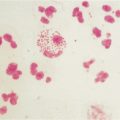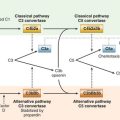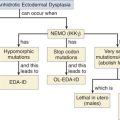CASE 47
ED is a 33-year-old man with a history of “globe-trotting” since the age of 18 and who has recently returned from a 4-month trip to Indonesia. He had declined all vaccinations before travel, with the exception of those (e.g., for yellow fever) demanded by the immigration authorities of the countries he wished to visit. Three weeks after his return his family noticed he was quite “yellow” about the face, and he felt listless and nauseated. His family physician ordered a variety of blood tests. Results of these show a picture of acute hepatitis, negative serology for hepatitis C or hepatitis A(E), but positive results for hepatitis B. You ask the laboratory for more detailed information on the immunoglobulin isotypes of the anti–hepatitis B antibodies. Why?
QUESTIONS FOR GROUP DISCUSSION
RECOMMENDED APPROACH
Implications/Analysis of Laboratory Tests
A number of automated tests (Abbott Laboratories) are available. In general, these are modified enzyme-linked immunosorbent assays (ELISAs) that permit large numbers of samples to be processed in a short time period. In essence, the patient’s serum is allowed to react with immobilized antibody in a reaction vessel, and then (after several washings to remove unbound antibody) some indicator system is added to detect and quantify the signal. Results of ED’s tests showed a picture of acute hepatitis: negative serology for hepatitis C and hepatitis A(E) but positive results for hepatitis B. On request for antibody isotype information, you are told that both IgM and IgG anti-HBc antibodies were present, indicating that this is a new infection. Antibody tests to HBsAg and HBeAg were negative.
HEPATITIS B AND IMMUNIZATION
The hepatitis B vaccine (HBsAg) is a recombinant protein (Engerix B and Recombivax). Typically, the schedule of vaccination consists of three doses of vaccine administered intramuscularly on a 0-, 1-, and 6-month schedule. Slight modifications of this schedule are possible, depending on the commercial source of the vaccine. Accelerated schedules are possible if someone is traveling before the recommended immunization schedule can be completed; however, this is not approved by the U.S. Food and Drug Administration.






